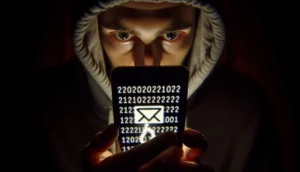
When you receive a call from a number like 903-228-8934, your immediate reaction might be one of curiosity. However, before calling back or engaging with the caller, it’s essential to understand what this number could represent.
The 903 area code is primarily associated with Texas, specifically northeastern regions of the state. This area code covers cities such as Tyler, Longview, and Paris. However, just because a number originates from a familiar area doesn’t necessarily mean the call is legitimate. Scammers often spoof local area codes to make their calls appear trustworthy.
While 903-228-8934 could be a legitimate call from someone you know or a local business, it’s important to keep in mind that telemarketers, robocallers, and scam callers also frequently use local numbers to increase the likelihood of the recipient answering.
Why Do Scammers Use Local Numbers Like 903-228-8934?
One of the main reasons scammers use local phone numbers is because people tend to trust numbers from their area codes. The theory is simple: when an unknown caller uses a familiar area code, it increases the chances that the recipient will pick up the phone. Here are some common types of scams that might come from numbers like 903-228-8934:
- Phishing Scams: Scammers may attempt to steal personal information by impersonating trusted organizations, like your bank or a government agency. They’ll often ask for sensitive information, such as social security numbers or credit card details.
- Robocalls: Automated systems may dial your number and leave a prerecorded message. These calls often promote fake products, services, or financial schemes.
- IRS and Tax Scams: Fraudsters pretending to be from the IRS may threaten you with arrest or legal action if you don’t pay a supposed debt immediately.
- Prize or Sweepstakes Scams: Callers may inform you that you’ve won a prize but need to pay fees or taxes upfront to claim it.
Recognizing these scams and knowing how to react is essential to avoiding the dangers posed by unknown numbers.
How to Identify if 903-228-8934 is a Scam Call
If you receive a call from 903-228-8934 or any unknown number, you should evaluate the situation carefully before taking any further action. Here are some warning signs to look out for:
- Unsolicited Calls: If you haven’t entered a contest, subscribed to a service, or asked for help from a company, receiving a call offering something for free can be a red flag.
- Urgency or Threats: Scammers often create a sense of urgency, telling you that you must act immediately to avoid some penalty, such as a fine or arrest.
- Asking for Personal Information: Legitimate organizations will never ask for sensitive information over the phone. Be wary if the caller requests personal data like your Social Security number, bank details, or passwords.
- Unprofessional Behavior: If the caller sounds unprofessional, disorganized, or unwilling to provide clear details about their company or reason for calling, it’s likely a scam.
- Strange or Suspicious Numbers: If you Google the number and find reports of it being used in scams, that’s a clear indication of suspicious activity.
Steps to Take When Receiving Calls from Unknown Numbers Like 903-228-8934
If you’re ever uncertain about a phone call, there are several precautions you can take to protect yourself:
- Don’t Answer Unrecognized Calls: If you don’t recognize a number, it’s often safer not to pick up the call. Let it go to voicemail instead. Scammers rarely leave messages, but legitimate callers will leave a message or try to contact you through other means.
- Use Call Blocking Services: Many phone carriers and third-party apps offer services to block or identify spam calls. These services can provide alerts if a call is likely to be a robocall or scam.
- Do Not Share Personal Information: Never share sensitive personal or financial details over the phone, especially with unsolicited callers. If you feel that a legitimate organization is trying to reach you, hang up and call their official number.
- Verify the Number: You can look up the phone number online to check if others have reported it as a scam. Websites like WhoCallsMe or 800notes offer databases where users can report suspicious numbers.
- Report Suspicious Numbers: If you determine that the call is indeed a scam, report the number to your phone carrier and the Federal Trade Commission (FTC). This helps to track and stop fraudulent activity.
Best Practices for Dealing with Unknown Numbers
Dealing with unknown numbers requires vigilance and caution. Here are some best practices for keeping yourself safe:
- Enable Call Screening: If your phone service provides it, enable call screening features to determine whether the call is from a known or unknown number.
- Use an Alternative Communication Channel: If you suspect the call might be legitimate but you don’t want to engage over the phone, consider contacting the company or person via their official website or email address.
- Educate Yourself About Common Scams: Familiarize yourself with the most common types of phone scams and how they operate. The more you know, the less likely you are to fall victim to fraud.
- Block Persistent Scammers: If a number repeatedly calls you with no legitimate reason, consider blocking the number directly through your phone or through your phone carrier.
How Technology Helps in Identifying Unknown Calls Like 903-228-8934
Thanks to advancements in technology, there are now several tools and services available to help identify and block suspicious calls. Some popular methods include:
- Caller ID Apps: Apps like TrueCaller and Hiya allow you to see the name or type of business behind an unknown number.
- Spam Call Detection: Many smartphones now have built-in spam call detection, which flags numbers suspected of being used for telemarketing or scams.
- Smart Voicemail Systems: Services like Google Voice offer advanced voicemail features that can transcribe and alert you about possible spam calls.
The Legal Landscape Surrounding Unknown Calls
The rise of robocalls and scam calls has led to stricter regulations around telemarketing and phone solicitations. Laws like the Telephone Consumer Protection Act (TCPA) and the National Do Not Call Registry aim to protect consumers from unwanted or illegal calls.
- Do Not Call Registry: If you don’t want to receive unsolicited calls, you can add your number to the National Do Not Call Registry. While this won’t block all calls, it will stop legitimate telemarketers from contacting you.
- Robocall Blocking Laws: The TRACED Act, passed in 2019, requires phone carriers to adopt technology that blocks illegal robocalls before they reach consumers.
By staying informed and proactive, you can minimize the risks of receiving calls from numbers like 903-228-8934.
Frequently Asked Questions (FAQs)
What should I do if I receive a call from 903-228-8934?
If you receive a call from 903-228-8934, let it go to voicemail if you don’t recognize the number. If it’s a legitimate call, they’ll leave a message. You can also look up the number online to see if it has been flagged as a scam.
Can I block calls from 903-228-8934?
Yes, you can block the number through your phone settings or by using a third-party app designed to block spam and robocalls.
How can I tell if 903-228-8934 is a scam?
Look for red flags such as unsolicited offers, threats, or requests for personal information. If the caller uses high-pressure tactics or refuses to provide details, it’s likely a scam.
Are all calls from 903 area codes suspicious?
Not all calls from the 903 area code are suspicious. However, scammers often use local area codes to make their calls seem more legitimate. Always exercise caution when dealing with unknown numbers.
Can I report scam calls like 903-228-8934?
Yes, you can report suspicious calls to your phone carrier, the Federal Trade Commission (FTC), or the Federal Communications Commission (FCC) to help prevent further scams.
How can I protect myself from scam calls?
Using call-blocking services, verifying the caller’s identity, and never sharing personal information over the phone are key steps in protecting yourself from scam calls.






